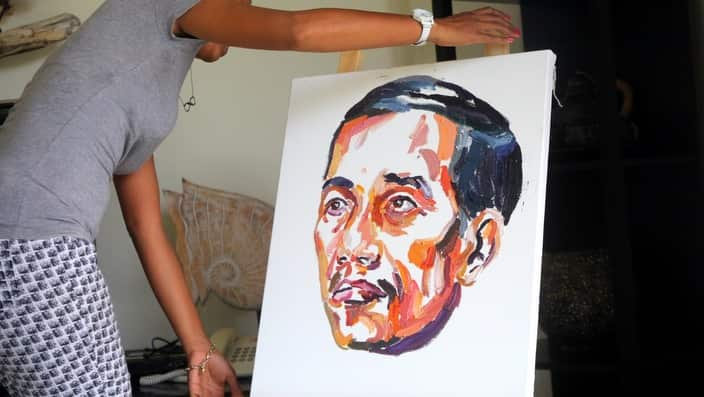This time last year, Indonesians were preparing to vote in the 2014 presidential election. With 53% of the vote, Joko Widodo – a political outsider with a modest background – was elected as the country's leader.
Since then, the relationship between Australia and Indonesia has endured some tense times with political decisions also affecting interpersonal relations.
"Indonesia has the law about drugs and Australia has the law about drugs so that we have to respect each other. And if the law states that they have to do the death penalty then they have to be punished by the death penalty," university student Muhammad Hakiki said.
On tonight's SBS Insight program – filmed in Jakarta - Indonesians share their often conflicting views on controversial issues like the execution of Bali 9 and Australian drug smugglers Andrew Chan and Myuran Sukamaran.
Balinese housewife Ayu said she felt implementing the death penalty wasn't the best way to tackle the issue of narcotics.
"Drugs is a never ending circle. You kill one of the drug dealers, there are hundreds more of them. So I guess no, it's not the right thing to do," Ayu says.
Matius Arif, a former convict turned evangelist and human rights activist, weighs in: "It is a very big problem. As Joko said, we have every day forty people die because of drugs. But then we have to underline 200 people every day die because of smoking. Which one is bigger, which one is heavier?"
Arif was in and out jail for drugs and robbery until he met Andrew Chan in Kerobokan prison.

While President Widodo, popularly known as Jokowi, has been seen as a tough leader by Australians for his refusal to grant clemency to Chan and Sukamaran, his popularity in the polls has decreased dramatically since he took the top post.
Almost one year into his five-year term, how has Jokowi’s party, the Indonesian Democratic Party of Struggle (PDI-P), delivered on its election commitments?
Pandi is a farmer from West Java. The 30-year-old with Sudanese background has been farming for a decade and voted for Jokowi.
"I supported him highly. I have also created a secretariat for the farmers to vote for Jokowi and at that time he gave promises to all the farmers that when he will elected to the President he will give land to the farmers to help them. And now I ask him, Jokowi, where are your promises?" Pandi asks.
Albertus Whitney, 28, likes Jokowi's vision for Indonesia. He's studied in Australia and currently working for his family business.
"The old politicians want to keep it the old way whilst what we have now is a government, is a President at least, the one President want to change the whole thing for the country, for the better of the country," Whitney said.
As Indonesians grapple with domestic issues, there are also concerns that Australia is not doing its part to help its neighbour – and, in fact, only adding to its problems.
Twenty-four year old Zahara Amalia is from central Java says: "If I'm not mistaken, like last month or month ago, like Tony Abbott also gave the asylum seeker to go back to Indonesia and it's also like painful for Indonesia. What Tony Abbott think about Indonesia?"
Nathalia Telly is a freelance journalist who was one of the students involved with toppling the Soeharto regime in 1998. She thinks Australians don't have an understanding of Asia and the Asian mindset, and says that needs to change if Australia wants to be of influence in the region.
"Australian also only understand Indonesia as Bali maybe but you have to understand that Indonesia is not only Bali but more than 17,000 islands. We have more than 700 languages besides our national language Bahasa Indonesia. So in this perspective, Australians in general, they fail to understand their neighbours, Asian neighbours, not only Indonesia," Telly said.
In this special episode, Insight hears from Indonesians on their assumptions and understanding of their nation's relationship with Australia. With a population of about 250 million inhabitants (according to the World Bank), what are the common issues that bind the Indonesian people?
WATCH PREVIEW
Insight is Australia's leading forum for debate and powerful first-person stories offering a unique perspective on the way we live. Read more about Insight
Have a story or comment? Contact Us


